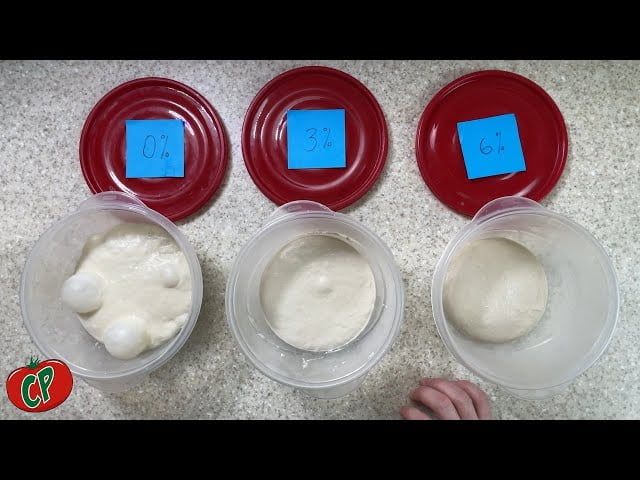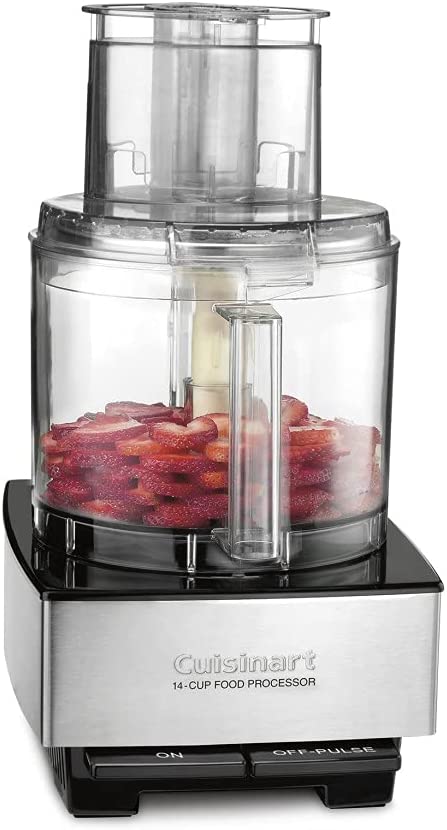
If you’re wondering how much salt you need for pizza dough you’re in the right place. This blog post will teach you everything you need to know about using salt in Pizza Dough including how much to use and what type of salt is best.
Checkout this video:
Introduction
Salt is an important ingredient in pizza dough It not only provides flavor, but also helps to control the fermentation process. The amount of salt you use will depend on several factors, including the type of flour you use, the hydration of your dough, and your personal preference.
There are two types of salt that are commonly used in pizza dough table salt and kosher salt. Table salt is more refined and has a stronger flavor than kosher salt. Because of this, you will need to use less table salt than kosher salt to achieve the same level of flavor.
The hydration of your dough will also affect the amount of salt you need to use. A dough with a higher hydration (more water) will require more salt than a dough with a lower hydration (less water).
Finally, your personal preference will play a role in how much salt you use. If you like your Pizza Dough to be on the salty side, you will need to add more salt than if you prefer a less salty dough.
In general, we recommend using between 1/2 teaspoon and 1 teaspoon of salt for every pound (450 grams) of flour. This is a good starting point, but feel free to adjust the amount of salt up or down based on your personal preferences.
The Science of Salt in Pizza Dough
Salt is an essential ingredient in pizza dough It helps to regulate the fermentation of the dough, produces a more uniform crumb structure, and gives the dough a bit of flavor. But how much salt do you need to use? And what happens if you use too much salt? Let’s find out.
What does salt do to pizza dough?
Salt is an essential ingredient in pizza dough It adds flavor and helps to control the fermentation process. But how much salt should you use, and what does it do to the dough?
Salt has two primary functions in pizza dough: it adds flavor and it controls yeast activity. The right amount of salt will give your dough a subtle salty flavor that enhances the other ingredients. Too much salt will make your dough taste salty and can inhibit yeast activity, resulting in a less flavorful and less well-risen pizza.
In terms of yeast activity, salt slows down the fermentation process. This is important because it gives the dough time to develop flavor and structure before the yeast causes it to rise too much. In a slow fermentation, the gluten proteins have time to interact and form a strong network that traps carbon dioxide gas bubbles. This results in a more chewy, flavorful crust. Faster fermentations produce a crust that is lighter and airier but with less flavor.
The amount of salt you use will depend on several factors, including the type of flour you are using, the temperature of your dough, and how long you plan to ferment it. A general rule of thumb is to use 2-3% salt by weight (2-3 grams per 100 grams of flour). For example, if you are using 100 grams of flour, you would use 2-3 grams of salt.
If you are using high-protein flour (like bread flour), you may want to use on the lower end of this range. If you are fermenting your dough at a higher temperature or for a shorter period of time, you may want to use the higher end of this range. Experiment until you find the amount of salt that works best for your specific recipe and ingredients.
How much salt should you use in pizza dough?
Salt is an important ingredient in pizza dough. It strengthens the gluten structure, provides flavor, and helps to control fermentation. But how much salt should you use in pizza dough?
The answer depends on several factors, including the type of flour you are using and the desired flavor of the pizza. Generally speaking, you should use between 2 and 3 teaspoons of salt per pound of flour. For example, if you are using 1 pound of flour, you would use 2-3 teaspoons of salt.
If you are using a high-protein flour, such as bread flour you may need to use a little more salt to get the same effect. For a really flavorful pizza dough, you could use up to 4 teaspoons of salt per pound of flour.
Remember that too much salt can make your dough too dense and difficult to work with. If you are making a large batch of dough, it is best to err on the side of using less salt rather than more. You can always add more salt later if needed.
How Much Salt Do You Need for Pizza DoughThe Art of Salt in Pizza Dough
It might seem like a silly question, but how much salt do you really need for your pizza dough? Too much salt can make your pizza dough tough, while too little will make it bland. The perfect amount of salt will give your pizza dough a nice flavor and make it easy to work with.
How to experiment with salt in pizza dough
Adding the right amount of salt to your pizza dough is important to get the perfect flavor. Too little salt and your pizza will be bland, but too much salt can make it too salty to enjoy. The best way to find the perfect amount of salt for your dough is to experiment with different amounts and see what you like best.
A good place to start is with 1 teaspoon of salt for every 2 cups of flour. This should give you a nicely seasoned dough. If you want a more pronounced salty flavor, you can add up to 2 teaspoons of salt per 2 cups of flour. Just be sure not to add too much, or your pizza will be inedible!
Once you’ve found the right amount of salt for your dough, be sure to add it in when you’re mixing all the ingredients together. Adding it at the end will result in an uneven distribution of salt, which will impact the flavor of your pizza.
What are some common mistakes with salt in pizza dough?
One common mistake people make is using too much salt in their pizza dough. This can lead to a number of problems, including a tough crust, an overly salty flavor, and difficulty rising. Another common mistake is not using enough salt. This can lead to a bland dough that is more likely to stick to your fingers and not rise as well. The best way to avoid these mistakes is to use the right amount of salt for your recipe.
Another common mistake is using iodized salt in pizza dough. Iodized salt can make the dough brown faster, so it’s best to use non-iodized salt or Kosher salt for pizza dough.
One last common mistake is using table salt instead of sea salt or kosher salt. Table salt has a finer grain which can make it easier to over-salt your dough. Sea salt and kosher salt have a coarser grain which makes them easier to control the amount you’re using.
Conclusion
After testing several different ratios of salt to flour, we’ve found that the perfect amount of salt for pizza dough is 1 teaspoon of salt for every 1 cup of flour. This ratio will result in a dough that is flavorful, but not too salty.



